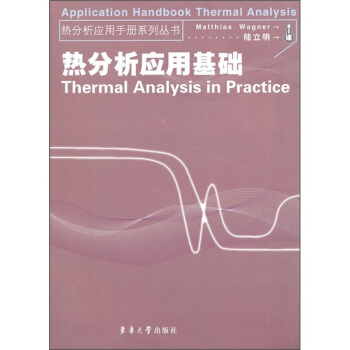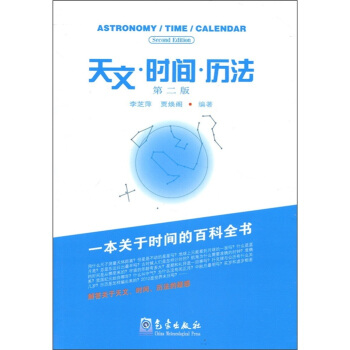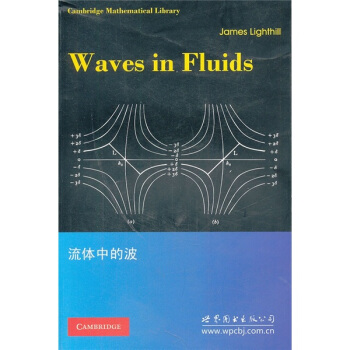![天元基金影印数学丛书:分析1(影印版) [AnalysisⅠ]](https://pic.tinynews.org/10126499/56722a96Nd4596f0b.jpg)

具体描述
内容简介
《分析1(影印版)》第一卷的内容包括集合与函数、离散变量的收敛性、连续变量的收敛性、幂函数、指数函数与三角函数;第二卷的内容包括Fourier级数和Fourier积分以及可以通过Fourier级数解释的Weierstrass的解析函数理论。《分析1(影印版)》是作者在巴黎第七大学讲授分析课程数十年的结晶,其目的是阐明分析是什么,它是如何发展的。《分析1(影印版)》非常巧妙地将严格的数学与教学实际、历史背景结合在一起,对主要结论常常给出各种可能的探索途径,以使读者理解基本概念、方法和推演过程。作者在《分析1(影印版)》中较早地引入了一些较深的内容,如在第一卷中介绍了拓扑空间的概念,在第二卷中介绍了Lebesgue理论的基本定理和Weierstrass椭圆函数的构造。
目录
PrefaceI - Sets and Functions
§1. Set Theory
1 - Membership, equality, empty set
2 - The set defined by a relation. Intersections and unions
3 - Whole numbers. Infinite sets
4 - Ordered pairs, Cartesian products, sets of subsets
5 - Functions, maps, correspondences
6 - Injections, surjections, bijections
7 - Equipotent sets. Countable sets
8 - The different types of infinity
9 - Ordinals and cardinals
§2. The logic of logicians
II - Convergence: Discrete variables
§1. Convergent sequences and series
0 - Introduction: what is a real number?
1 - Algebraic operations and the order relation: axioms of R
2 - Inequalities and intervals
3 - Local or asymptotic properties
4 - The concept of limit. Continuity and differentiability
5 - Convergent sequences: definition and examples
6 - The language of series
7 - The marvels of the harmonic series
8 - Algebraic operations on limits
§2. Absolutely convergent series
9 - Increasing sequences. Upper bound of a set of real number
10 - The function log x. Roots of a positive number
11 - What is an integral?
12 - Series with positive terms
13 - Alternating series
14 - Classical absolutely convergent series
15 - Unconditional convergence: general case
16 - Comparison relations. Criteria of Cauchy and dAlembert
17 - Infinite limits
18 - Unconditional convergence: associativity
§3. First concepts of analytic functions
19 - The Taylor series
20 - The principle of analytic continuation
21 - The function cot x and the series ∑ 1/n2k
22 - Multiplication of series. Composition of analytic functions. Formal series
23 - The elliptic functions of Weierstrass
III- Convergence: Continuous variables
§1. The intermediate value theorem
1 - Limit values of a function. Open and closed sets
2 - Continuous functions
3 - Right and left limits of a monotone function
4 - The intermediate value theorem
§2. Uniform convergence
5 - Limits of continuous functions
6 - A slip up of Cauchys
7 - The uniform metric
8 - Series of continuous functions. Normal convergence
§3. Bolzano-Weierstrass and Cauchys criterion
9 - Nested intervals, Bolzano-Weierstrass, compact sets
10 - Cauchys general convergence criterion
11 - Cauchys criterion for series: examples
12 - Limits of limits
13 - Passing to the limit in a series of functions
§4. Differentiable functions
14 - Derivatives of a function
15 - Rules for calculating derivatives
16 - The mean value theorem
17 - Sequences and series of differentiable functions
18 - Extensions to unconditional convergence
§5. Differentiable functions of several variables
19 - Partial derivatives and differentials
20 - Differentiability of functions of class C1
21 - Differentiation of composite functions
22 - Limits of differentiable functions
23 - Interchanging the order of differentiation
24 - Implicit functions
Appendix to Chapter III
1 - Cartesian spaces and general metric spaces
2 - Open and closed sets
3 - Limits and Cauchys criterion in a metric space; complete spaces
4 - Continuous functions
5 - Absolutely convergent series in a Banach space
6 - Continuous linear maps
7 - Compact spaces
8 - Topological spaces
IV - Powers, Exponentials, Logarithms, Trigonometric Functions
§1. Direct construction
1 - Rational exponents
2 - Definition of real powers
3 - The calculus of real exponents
4 - Logarithms to base a. Power functions
5 - Asymptotic behaviour
6 - Characterisations of the exponential, power and logarithmic functions
7 - Derivatives of the exponential functions: direct method
8 - Derivatives of exponential functions, powers and logarithms
§2. Series expansions
9 - The number e. Napierian logarithms
10 - Exponential and logarithmic series: direct method
11 - Newtons binomial series
12 - The power series for the logarithm
13 - The exponential function as a limit
14 - Imaginary exponentials and trigonometric functions
15 - Eulers relation chez Euler
16 - Hyperbolic functions
§3. Infinite products
17 - Absolutely convergent infinite products
18 - The infinite product for the sine function
19 - Expansion of an infinite product in series
20 - Strange identities
§4. The topology of the functions Arg(z) and Log z
Index
精彩书摘
The concept of a set10 is a primitive concept in mathematics; one can no moreprovide a definition than Euclid could define mathematically what a point is.In my youth there were those who said that a set is "a collection of objects ofthe same nature"; apart from the vicious circle (what indeed is a "collection" ?a set?),to talk of "nature" is empty and means nothing11. Certain denigratorsof the introduction of "modern math" into elementary education have beenscandalised to see that in some textbooks they have had the temerity to formthe union of a set of apples with a set of pears; never mind that a normalchild will tell you that this gives a set of fruits,or even of things,and if askedto count the number of elements of the union any moderately intelligent childcan explain to you that it does not matter that the first set consists of applesrather than oranges and the second of pears rather than dessert spoons; thefact that the Louvre Museum combines disparate collections - of pictures,sculptures,ceramics,gold work,mummies,etc. - has never troubled anyone.One calls this: to acquire the sense of abstraction.The logicians have in any case long since invented a radical method ofeliminating questions concerning the "nature" of mathematical objects orsets (the two terms are synonymous). One can describe this in a figurativeway by saying that a set is a "primary" box containing "secondary" boxes,its elements,no two of which have identical contents,which in their turncontain "tertiary" boxes themselves containing... The Louvre is a collectionof collections (of paintings,sculptures,etc.),the collection of paintings isitself a collection of paintings stolen by Bonaparte,Monge and Berthollet inItaly (we unfortunately had to return it in 1815),bequeathed by ... privatecollectors,bought at sales,etc.
用户评价
这本书的装帧确实很厚实,拿在手里就有一种沉甸甸的知识感。纸张的质地我非常喜欢,不是那种廉价的、容易泛黄的纸,而是带着一点点米色,印刷也清晰锐利,即便是细小的公式符号都能看得一清二楚,长时间阅读也不会觉得眼睛疲劳。封面的设计虽然朴素,但“天元基金影印数学丛书”几个字,加上“分析1”的标注,透露出一种严谨和专业的气息。我本身是数学专业的学生,在学习分析的过程中,经常会遇到各种各样的教材,有些可能侧重于理论的严密性,有些则侧重于例题的丰富性。拿到这本书时,我最关心的就是它的编排方式,以及知识点的呈现是否能够循序渐进。虽然我还没有深入研读,但初步翻阅时,那种扑面而来的学术氛围,以及它所承载的厚重感,已经让我对接下来的学习充满了期待。影印版最大的好处就是能够保留原汁原味,这一点对于数学研究来说尤其重要,因为有些细微的表达和推导,在翻译过程中可能会丢失一些精髓。所以,我个人非常看重这一点,也相信这本书能够为我的分析学习提供坚实的支撑。
评分我一直觉得,好的数学书不仅仅是知识的载体,更是一种思维的启迪。拿到这本书,第一感觉就是它散发着一种严谨而又充满力量的气息。书的开本大小适中,拿在手中很舒服,而且纸张的质感非常棒,不是那种光滑得容易反光的纸,而是带着一种细腻的触感,印刷清晰,字迹工整,即使是复杂的数学公式,也一览无余,这一点对于长时间阅读来说,简直是福音。我非常欣赏“影印版”这三个字,它意味着一种对原著的尊重,以及对知识原貌的保留,对于数学这种高度严谨的学科来说,这一点尤为重要。虽然我还没有深入翻阅其内容,但仅凭这种精美的装帧和高品质的纸张印刷,就足以让我对其内容充满信心。我期待这本书能够像一位循循善诱的导师,带领我一步步探索分析学的奥秘,让我能够理解那些看似深奥的理论,并从中获得解决问题的能力。这本书不仅仅是一本教材,更可能成为我学术道路上的一个重要里程碑。
评分当我在书架上看到这本书时,一种莫名的亲切感油然而生。它静静地摆在那里,散发出一种朴实却不失庄重的气质。“天元基金影印数学丛书”这个系列名,本身就代表着一份沉甸甸的学术分量,而“分析1”的标注,则直接点明了它在数学学习中的基础性和重要性。这本书的装帧设计很简洁,没有过多的花哨装饰,但正是这种“大道至简”的设计,反而更能凸显出其内容的深刻。我尤其喜欢它选用的纸张,触感温润,不会显得生硬,印刷的清晰度也非常令人满意,即便是细小的数学符号,也都能准确无误地呈现出来。我一直觉得,好的数学书,不仅仅是传授知识,更是在塑造一种严谨的思维方式。这本书所蕴含的学术底蕴,以及影印版所代表的原汁原味,都让我对它充满了期待。我相信,它会是我在分析学学习道路上一个可靠的伙伴,引领我穿越那些可能出现的迷雾,抵达知识的彼岸。
评分这本书的外观给我留下了深刻的印象。厚重的封面,坚实的装订,都传递出一种经久耐用的质感。拿在手中,能够感受到它所承载的知识重量,让人心生敬意。纸张的触感非常舒适,不是那种粗糙的或者过于光滑的,而是介于两者之间,带有天然的纤维感,印刷清晰锐利,每一个数学符号都清晰可辨,长时间阅读也不会让眼睛感到疲劳。我个人非常看重教材的“影印版”属性,因为在我看来,数学的精妙之处往往体现在其原始的表述和推导过程中,任何细微的转译都可能带来理解上的偏差。因此,能够直接接触到原版的精髓,对我来说是极其宝贵的。虽然我还没有深入阅读其具体内容,但仅从这本书的物理形态和出版者的信誉来看,我对其学术价值已然充满信心。我期待它能够为我提供一个扎实、系统、并且能够激发深入思考的学习体验,帮助我真正理解和掌握分析学的基础知识。
评分作为一名对数学充满好奇心的爱好者,我一直希望能找到一本能够真正引导我进入分析学殿堂的入门书籍。市面上有很多关于分析的教材,但往往要么过于理论化,让人望而却步,要么则流于表面,缺乏深度。这本书的出现,让我看到了希望。从它的书名和系列名称就可以感受到一种专业性和权威性,尤其“天元基金”的背书,更是让人对其内容质量有了天然的信任。我尤其看重它“分析1”的标记,这意味着它很可能是系统性学习分析学的起点,对于我这种初学者来说,一个清晰的路径和稳固的基石至关重要。虽然我还没来得及深入阅读,但光是抚摸着这本书,感受着它纸张的质感和油墨的清香,就能感受到一种即将开启一场知识冒险的激动。我期待它能够用一种深入浅出,又充满逻辑严谨的方式,为我揭示分析学的魅力,让我能够真正理解那些看似抽象的概念,并能将其应用到解决实际问题中。这本书对我来说,不仅仅是一本教材,更是一扇通往更广阔数学世界的窗户。
评分系列书籍,慢慢品味,十字
评分亞西爾·阿拉法特(圖)當選成為巴勒斯坦解放組織委員會主席。 福、丘吉爾和斯大林在乌克兰克里界大戰結束後有關歐洲重組的議題。
评分gòo?o?o?o?o?o?o?o?o?o?o?o
评分960年
评分960年
评分本书是综合性大学和高等师范院校数学系本科生数学分析课程的教材。全书共分两册。第一册共六章,内容为函数、序列的极限、函数的极限与连续性、导数与微分、导数的应用、不定积分;第二册共六章,内容为定积分、广义积分、数项级数、函数序列与函数项级数、幂级数、傅里叶级数:五章,内容为n维欧氏空间与多元函数的极限和连续、多元函数微分学、重积分与广义重积分、曲线积分与曲面积分及场论、含参变量的积分。本书每章配有适量习题,书末附有习题答案或提示,供读者参考。
评分中国三国时期魏国皇帝曹奂被迫将皇位禅位于晋王司马炎,晋朝建立。
评分後周將領趙匡胤發動陳橋兵變,讓士兵擁其為皇帝,並且建立之後統治中國長達3個世紀之久的宋朝。
评分美国南方7个州的代表在亚拉巴马州蒙哥马利召开会议,共同組成美利坚联盟国。
相关图书
本站所有内容均为互联网搜索引擎提供的公开搜索信息,本站不存储任何数据与内容,任何内容与数据均与本站无关,如有需要请联系相关搜索引擎包括但不限于百度,google,bing,sogou 等
© 2026 book.tinynews.org All Rights Reserved. 静思书屋 版权所有




![医学英文原版改编双语教材:哈珀图解生物化学(第27版)(导读版) [Harpers Illustrated Biochemistry] pdf epub mobi 电子书 下载](https://pic.tinynews.org/10321059/fa3157b0-754d-41ce-ab61-f8d596c345a8.jpg)




![妙趣横生的通识读本·超个体:昆虫社会的美丽、优雅和奇妙 [The Superorganism:The Beauty,Elegance,and Strangeness of Insect Societies] pdf epub mobi 电子书 下载](https://pic.tinynews.org/10834987/b3ecfa98-0bfc-4218-b146-493b2191476b.jpg)



![近代物理科学的形而上学基础 [The Metaphysical Foundations of Modern Physical Science:A Historical and Critical Essay] pdf epub mobi 电子书 下载](https://pic.tinynews.org/11071628/rBEHZVBEb34IAAAAAACbedgdlX8AAA_1gBPJkcAAJuR661.jpg)





![物理学经典教材:天体物理学(影印版)(英文版) [Astrophysics in a Nutshell] pdf epub mobi 电子书 下载](https://pic.tinynews.org/11270385/rBEhWVHdNdoIAAAAAAKwh8fHBXwAAA7LgN9rQIAArCf568.jpg)
